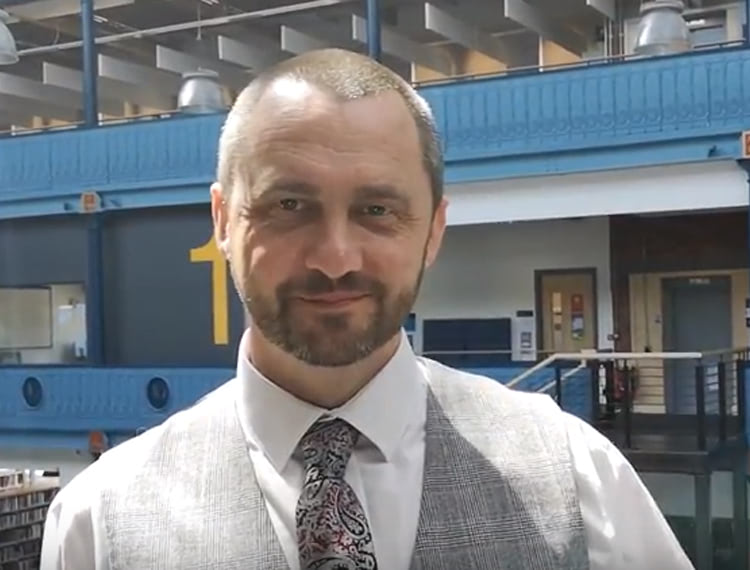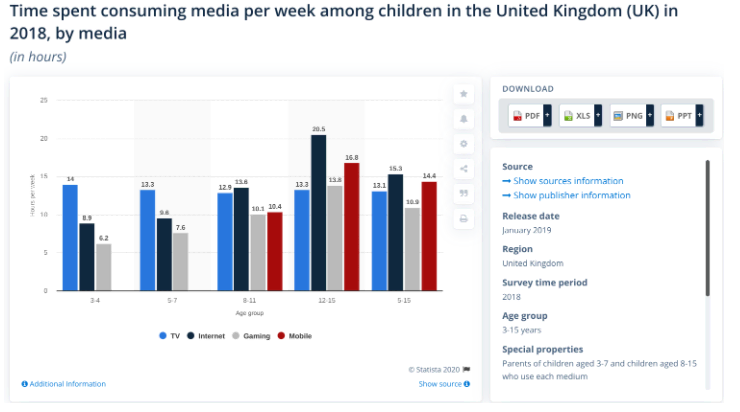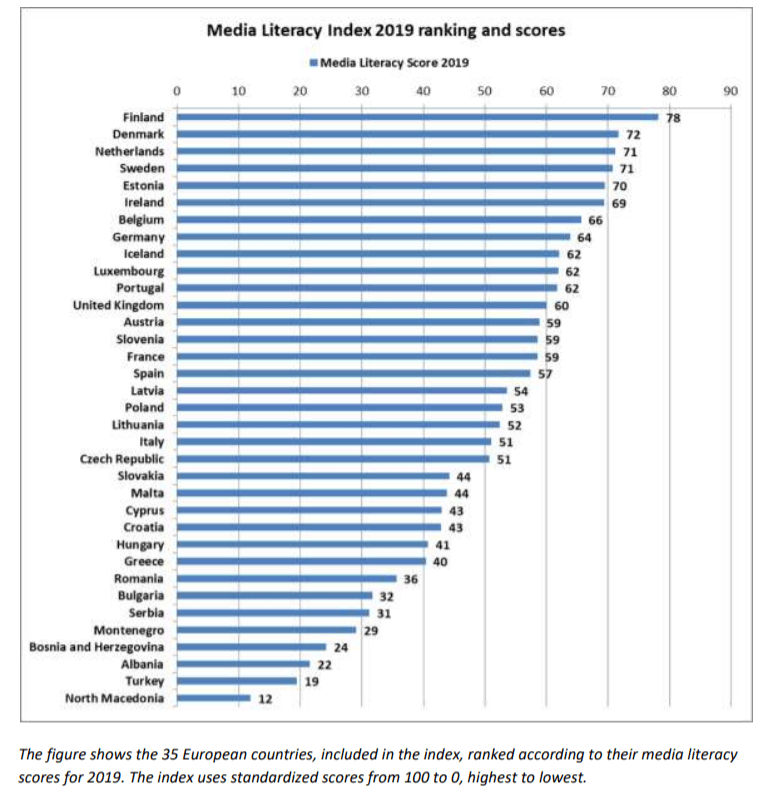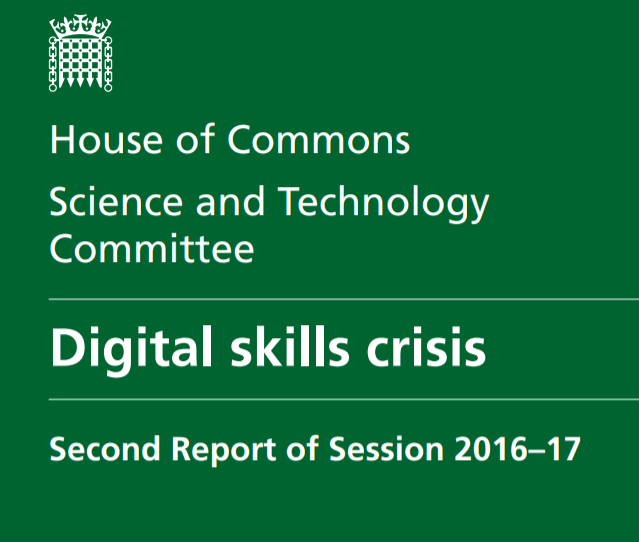Free Radicals. British Values vs The Disinformation Age

British Values, democracy, individual liberty, the rule of law, mutual respect and tolerance has long been a part of the UK education landscape in part as an attempt to address the threat posed by radicalisation as directed by the UK Government.
In recent times the responsibility placed on educators to amplify these values has become more complex than anyone could have predicted not least because educators are up against multi-billion dollar corporations whose platforms are acting against them.
As many young people spend several hours a day online, often on social media, educators are up against platforms of immense influence whose values may be set against those they are charged with upholding. I didn’t always see it this way.
As the world of social media arrived I was one of it’s champions. As global social platforms emerged I had in mind the words of the late physicist and author Professor Stephen Hawking when he said that “mankind’s greatest achievements have come about by talking, and it’s greatest failures by not talking”. In my optimistic view I saw the possibilities of platforms such as Facebook to create a global conversation.
In doing so my hope was that it would promote greater unity and understanding by connecting people all over the world irrespective of location (yes really, but hey, I had raised two kids at that time and spent a decade watching Disney films so I think it had subconsciously affected me).
I recall being in the staffroom of a college I was working in at the time discussing the rise of social media with a trusted colleague. I was all positive about it and she wasn’t, instead arguing how it could be weaponized to divide and radicalise people. I didn’t get it then, but she was right.
I realise now that as an entrepreneur I have a subconscious bias to focus on the prize, on the things that will go right (as I suspect Mark Zuckerberg did). It’s a characteristic I believe to be essential for success in business, but it’s also critical to surround yourself with a diversity of voices and perspectives including those voicing concerns about what might go wrong if unintended consequences are to be avoided.

Social Media & Unintended Consequences
In the recent documentary ‘The Social Dilemma’ director Jeff Orlowski explores the rise of social media and its negative impact on society through what it calls surveillance capitalism and data mining, revealing how the design of many social media platforms create an addiction in the user. The documentary makers share insights from industry leaders exploring negative consequences for mental health as well as the role of these platforms in spreading conspiracy theories. For educators these issues are not simply about distractions in the teaching space not least because fake news isn’t on a mobile phone, it’s in peoples heads, and the heads of the parents and carers of the students in the classroom.
The jury is out on the extent to which the team at Facebook set out to do harm and I believe that for many at Facebook they believe it to be a force for good. However, it hasn’t really worked out that way and too often entrepreneurs do not stop to ask themselves what the unintended consequences of an action might be. If Mark Zuckerberg had asked this question at the start of the Facebook journey, I have little doubt we would still have Facebook and Mark would still be a billionaire, but maybe their community guidelines and algorithms just might behave a little differently in a way that aligns slightly more with educators and the mission they are charged with delivering, rather than actively working against them.
I was recently watching a superb TED talk by American National Security Specialist and former CIA Officer Yael Eisenstat who has some pedigree on this subject, not least because in 2018 Yael was also the Global Head of Elections Integrity Ops for Facebook. Yael knows a thing or two about how social media platforms can be weaponized in a way that runs headlong into direct confrontation with British Values.

Yael knows in more detail than most how the algorithms running platforms like Facebook do not polarize opinions accidentally. It’s the core business model. Stronger, negative emotional responses, especially those that enrage, create engagement. This is great for the revenue streams of platforms that are monetized based on engagement, but very bad for values aligned to democracy and tolerance. Too often these algorithms are leading to echo chambers of ever more extreme views on any given subject, not least politics. There is an increasing body of evidence that negative implications for mental health are an additional factor in the mix also. Digital wellbeing is now a key issue and the technology companies have been slow to respond, some more so than others.
Ask most educators if they are seeing increasing mental health issues among the next generation and you will get an almost uniform response and it’s not a positive one, and whilst this is not solely due to social media the evidence would suggest it’s not helping. There is some evidence suggesting causality between the time spent on social media platforms and mental health issues, and this matters as young people are spending many hours a day on these platforms. For educators charged with promoting British Values in a time constrained way, it raises the question of whether digital literacy should be an essential part of the curriculum in the same way that British Values is, as my contention is that you can’t address one without also addressing the other.
Freedom of Reach.
English actor and comedian Sacha Baron Cohen was recently speaking about the dangers of platforms like Facebook in the context of undermining values of democracy, you can see an extract of it here:
Cohen has spent most of his career focused on his comedy but felt compelled to speak out on what he describes as the unchecked ‘freedom of reach’ that Facebook enjoys, commenting that if Facebook had been around in the 1930s it would have allowed Hitler to post adverts. Sadly, it’s hard to argue that isn’t the case.
Cohen concludes that nothing creates more engagement for platforms like Facebook than lies, fear and outrage. It’s a view shared by Yael Eisenstat and countless others. Given the ability of platforms like Facebook to reach broadly a third of the entire planet, it’s my contention that our world of education needs far greater investment and support in terms of training and development to address this.
Educators need to be equipped with the skills and understanding of the science of persuasion in the context of algorithms that radicalise and to be able to address this with more confidence and understanding in terms of how this works, how these platforms can be weaponized to undermine British Values, and how to challenge it to create a more civilised world. This isn’t about political ideology, it’s far more important than that. It’s about the kind of world we want to live in and the values that underpin it.
The UK education system is charged with promoting British Values like tolerance in the face of a world that has never been so divided and it’s not something that can be resolved through a few peripheral enrichment sessions. It requires dedicated targeted resources backed up by national policy.
What about free speech? The Tolerance Paradox.
Philosopher Karl Popper described the paradox of tolerance in the following way, that in order to maintain a tolerant society, the society must be intolerant of intolerance. If a society fails to do this, it’s tolerance is ultimately destroyed by the intolerant.
It’s not hard to see how this is relevant to social media giants like Facebook who only fact check posts after they have been posted. It’s for this reason that platforms like Facebook should stand for a set of values, but having spent months researching and testing the parameters of what Facebook considers to be a breach of its community standards (yes it actually has them, just not sure if they have read them) the only conclusion I could draw having found and reported multiple posts that are either fake news or designed to undermine tolerance or democracy is that none of it is enforced. I have a huge list of standardised responses informing me that I did the right thing to report it but that on this occasion, and as it would turn out every occasion, it did not go against their community standards. I am not alone in this experience. Facebook actually states that, and I directly quote, “authenticity is the cornerstone of our community”. It would be funny if it weren’t so serious.
Facebook has come under increasing pressure in this context and now releases data on its performance in tackling fake news and extremism, but there’s a big problem with the data that Facebook releases. The Facebook team wants you to focus on what they have measured, not what they haven’t. In a report titled “Facebook’s Technocratic Reports Hide It’s Failures on Abuse” writer, professor and speaker Chris Gilliard highlights that every time Facebook releases such data it’s asking us to focus on all the people the company didn’t harm. This is extremely odd if you think about it. After all, airlines don’t publish reports saying ‘this year we killed 95% less people”. It would be considered unacceptable. The reason Facebook adopts this approach is to mask the fact that most extreme content or fake news goes undetected and unreported on the platform. This means that as Facebook fails to protect its users from the harmful effects of such content, it places the burden of responsibility on the user to self regulate and that’s why education is currently the only way to go, and it needs to be targeted to be effective. It’s adult learners where the need is most urgent.
There are no alternative facts.
Alternative facts are now almost a common part of our 21st century lexicon. The phrase was used by the US Counselor to the US President Kellyanne Conway during a ‘Meet the Press’ interview back in 2017 when defending White House Press Secretary Sean Spicer’s false account of the numbers who had attended Donald Trump’s inauguration. As interviewer Chuck Todd commented at the time, ‘Look, alternative facts are not facts. They’re falsehoods”. Indeed so. For political leaders wishing to influence populations to their advantage, social media and in particular Facebook presents a major opportunity in this context. In case you were wondering why I am focusing on Facebook so much in this article it’s because it spreads fake news more than any other platform, and by a long, long way.
An article featured in Forbes citing the journal Nature: Human Behaviour outlines research led by Andrew Guess of Princeton University that tracked the internet usage of more than 3000 Americans and found that Facebook was more likely to refer the user to untrustworthy material than any other platform. Why? Because it knows that’s how you get engagement if the user is exposed to content that provokes an extreme emotional response, creating an addictive and dangerous echo chamber to the user. In the absence of Government intervention to force companies like Facebook to act, education presents the only viable defence.
Our generation is the first to experience mass digital communication platforms that can target billions of people in seconds. We are also the first generation to experience the rise of digital fake news and alternative facts that weaponise platforms with global reach. It’s my contention we are also the last generation to be able to do something about it. It was English writer H G Wells who said “Civilisation is in a race between education and catastrophe. Let us learn the truth and spread it as far and wide as our circumstances allow. For the truth is the greatest weapon we have”. As educators know, in the digital age the challenge, as the old saying goes, is that a lie can get halfway around the world before the truth has got its boots on. Education is clearly the only solution.
Looking globally to how leading educators have risen to the challenge of tackling a digital world of fake news and the consequences it brings for national values, you could do worse than look to Finland.
Finland is getting it right. Again.
Facebook’s VP of advertising Rob Goldman once said on Twitter that “Disinformation is ineffective against a well-educated citizenry” nicely avoiding any sense of personal responsibility for that disinformation. Imagine drug dealers citing a similar defence?

On this point of education as a defence against fake news the World Economic Forum highlights Finland and its education system as among the most effective in the world in fighting the battle of fake news, citing research by the Media Literacy Index compiled by the Open Society Institute in Sofia. Sweden and Estonia also feature highly in the latest index making up those at the top in the context of resiliency in the face of digital propaganda. As far back as 2013 the World Economic Forum’s Global Risks Report warned of ‘digital wildfires’ in the context of false information spreading on platforms like Facebook. On the Media Literacy Index it is interesting to note the countries showing the greatest regression and to unpick the reasons why. Poland and Latvia have regressed the most in recent years, both countries experiencing a correlating increase in distrust of the media, science and technology and conventional politics creating a major lurch to the right in their national politics. There is a cautionary tale from history here in how this can end as Sacha Boren Cohen alludes to in his speech denouncing Facebook for allowing posts denying the holocaust. The only purpose behind such posts is to create the conditions for another one. This is why platforms that promote disinformation pose the greatest threat to British Values and once again it appears that its educators have been left in the frontline to deal with it. My contention is that it’s time for our national politicians to step up and show some leadership in backing educators properly to address this challenge rather than simply measuring how impactful they are being.
Whilst some nations have been exposed for their lack of resilience in the face of a tsunami of fake news Finland is going in the opposite direction. In an article in the Guardian titled “How Finland Starts its Fight Against Fake News in Primary Schools” educator Kari Kivinen explains how even in primary schools students are educated to critically evaluate information, fact check it against credible sources that can be verified and made this approach a core part of all teaching across all subjects. The purpose of this was to create active, responsible and engaged citizens aligned to national values such as democracy.
This approach was in part a reaction to a sustained attack originating in Russia back in 2014 when Finland was targeted with fake news stories designed to undermine its democratic process. The Government in Finland realised it had to educate its population in a post-fact age. From their pupils to politicians, in Finland the population is equipped with the skills to manage fake news and their success is evidenced in the Media Literacy Index of several years.
The authors of the Media Literacy Index recognise that to fully address the challenges of the disinformation age will require both a regulatory and education based approach noting that education is by far the most effective solution. The challenge in the UK isn’t small in this context and it doesn’t apply to just the younger generations. The House of Commons Science and Technology Committee report titled ‘Digital Skills Crisis’ published in 2016-17 pointed out that more than 12 million adults in the workplace lack basic digital skills including the ability to identify fake news online. This is a massive national problem.
In 2019 the fastest growing age demographic on Facebook was the over 65’s with similar growth in the over 45 category. In their article titled “Less than you think: Prevalence and predictors of fake news dissemination on Facebook” authors Andrew Guess, Jonathan Nagler and Joshua Tucker share that on average Facebook users aged 65 or over were nearly seven times more likely to share fake news than younger age groups. For college and university leaders, this is as much an issue for mature learners (the data would suggest more so) than for younger students.
The 20’s this time around has started with a tale of two pandemics. A viral one as the world battles the challenges of the Covid19 pandemic, and a digital one as democracies battle to manage platforms that have increasingly become weaponized against them. It’s my contention that the investors behind these platforms will not take the required action to address these issues because there is no motivation for them to do so. Social Media platforms like Facebook can’t be trusted to self regulate anymore than an industry like gambling could. A Government level approach is needed where democratically elected officials decide on policies and regulations that require such platforms to support the values of that democracy and where the rules of operating in that territory are clearly defined and aligned to national values combined with an education driven response. The UK currently has the latter without the former.
UK educators are at the frontline of both the viral pandemic with Covid19 as well as the frontline of those dealing with disinformation, fake news, conspiracies and alternative facts. It’s my contention that as a nation we need to reinforce the support provided to educators to combat this with strategic financial investment so educators can both access leading specialist advice from industry as well as undertake professional development in advanced digital literacy skills to equip them with the confidence to meet the challenge.
If we really believe in British Values and wish to defend them this is about more than digital competencies and digital literacy. To address this challenge it will require a national digital citizenship programme and an education sector equipped, resourced and supported to deliver it. If we do that and get it right then the race between education and catastrophe can end well.
If we are to defend British Values in the disinformation age against a pandemic of fake news designed to challenge values of democracy and tolerance, then as countries like Finland have demonstrated, education is the best vaccination strategy we have.
Jamie Smith, Executive Chairman of c-learning













Responses